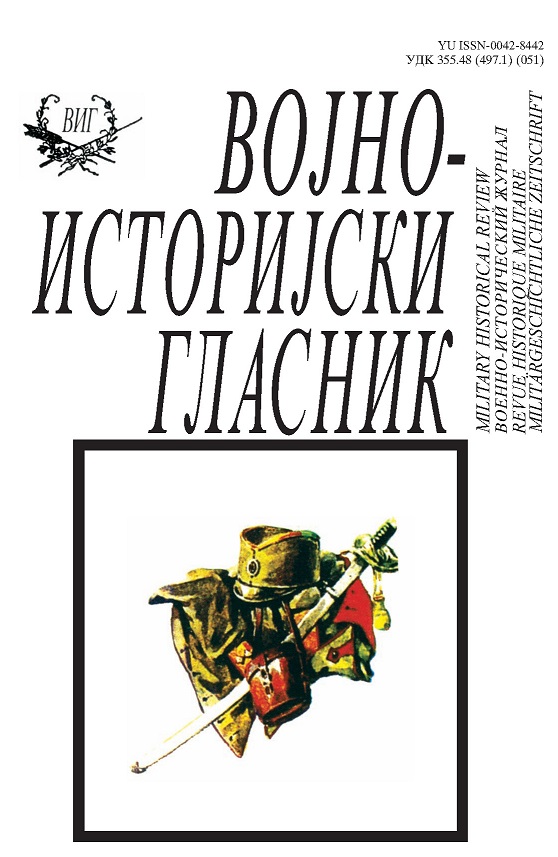Југословенско–амерички односи у предвечерје Другог светског рата
Yugoslav-American Relations on the Eve of the WWII
Author(s): Nataša MilićevićSubject(s): Diplomatic history, Political history, International relations/trade, WW II and following years (1940 - 1949)
Published by: Institut za strategijska istraživanja
Keywords: The Second World War; Yugoslavia; United States of America; international relations; diplomacy;
Summary/Abstract: Relations between Yugoslavia and America were of low intensity between the two world wars. Although they were developing continuously, they were mainly focused on economic issues. Those relations were the result of Yugoslavia’s focus on its role as a regional actor and America’s policy of isolation. On the eve of WWII, relations became more intense and diverse. That was the period when the problem of war debts and Yugoslav loans signed in America (the loan of Blear and Seligman) were dominating (just as before 1935), as well as negotiations about Yugoslav debt conversion. The Kingdom of Yugoslavia wanted to purchase armament in order to strengthen the state’s defense capability and that was its main interest in America. Yugoslav interest grew as the war moved closer to its boundaries. Numerous attempts to purchase equipment through various canals were unsuccessful, except the purchase of 1,000 trucks. Reasons for the lack of trade lay in American administrative, legal and political limitations and Yugoslavia’s chronic lack of money. When the war started and all formal limitations were gone, the inability of American factories to fulfill Yugoslav needs due to their overload with British and French orders became the new limitation. Contacts between the two countries became more intensive after 1939, when American interest in Yugoslavia grew. America wanted Yugoslavia to maintain its neutrality and to resist German influence, so those relations were something between political pressure and support. That is visible through President’s Roosevelt speeches, as well as through some activities, like controlling financial flows, i.e. freezing Yugoslav money and gold in America until Colonel Donovan visited in 1941. In any case, WWII brought America back onto the European scene and increased the importance of the US for the Kingdom of Yugoslavia. For American policy on the Balkan Peninsula, where the USA did not act alone, but at the suggestion of Great Britain, the importance of Yugoslavia grew. In time, an independent American diplomatic role in the Balkans would grow, as it did around the world.
Journal: Vojnoistorijski glasnik
- Issue Year: 2008
- Issue No: 2
- Page Range: 130-148
- Page Count: 19
- Language: Serbian

